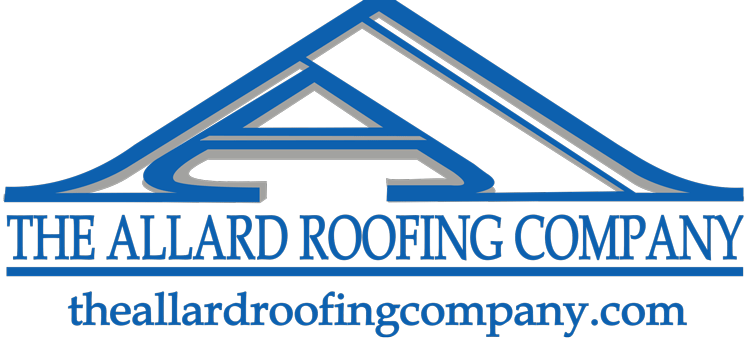TPO
Polypropylene and ethylene-propylene rubber polymers bound together create Thermoplastic Polyolefin (TPO). Essentially rubberized plastic, the chemical components sandwich a fiber mesh, known as skrim, to create a tough but pliable membrane. Heat welding bonds the seams so that they become stronger than the TPO in the field. Less susceptible to damage from impacts, tears, gouging or footfall, you can see why many commercial building owners select it. Depending on the membrane thickness and installation method, product manufacturers offer installation warranties ranging between 10 and 35 years.
Benefits of TPO
- Easy to install
- Non-toxic
- Long-lasting performance
- Withstands ponding water and foot traffic
- Does not require hot tar kettles and associated risks
- Competitive in price
- Strong seams
- Easy to repair
- Available in white
- Recyclable
Disadvantages of TPO
- Inexpensive TPO can be especially vulnerable.
- If there's a puncture in an area where water ponds, you could experience a severe leak.
- Newer, improved materials, such as thicker membranes and specialized work pads, alleviate a lot of the drawbacks.
- However, TPO will still shrink over time.
- Stiffer than EPDM and PVC
- Unsuitable for restaurants as grease will corrode the material
Modified Bitumen
Modified Bitumen is installed in one of three ways:
- Self-adhesive: This means that each layer has a sticky backside that is covered in plastic. Upon removal of the plastic the layers stick down and seal when the sun hits it.
- Heat adhesive/welded: This usually involves a propane torch to melt the bitumen and seal it together. SBS and APP act differently when heated.
- Cold adhesive: Bitumen that is liquid at room temperature is used. This reduces potential fire risk and toxic fumes that can come from the heat adhesive.
Benefits of Modified Bitumen
- Durable in extreme weather conditions
- Easy to repair tears or holes in the system
- It comes in rolls, which ease the application and keep costs down
- Manufactured in a factory which means the quality control is good
- It expands and contracts with the movement of the building
- It resists UV light, which reduces cooling costs in the summer and prolongs the life of the roof
Disadvantages of Modified Bitumen
- It can be difficult to detect the source of a leak
- It is not the longest lasting roof. Depending on the quality of the installation and the environment 10 – 25 years of service is common
- When using a hot-applied Modified Bitumen, safety is often a concern. Kettles of asphalt are dangerous and care must be taken when applying this product
- Neighbors often complain of the smell of a hot-applied Modified Bitumen
- If a roofing system requires hot asphalt or an open flame, your contractor will need to create a site-specific safety plan.
PVC
PVC (polyvinyl chloride) commercial roofs are the original heat-welded single-ply roofing systems ? they' been around for more than 50 years. They're durable, flexible, and either fully adhered or mechanically fastened. PVC roofs are excellent at resisting rooftop chemicals, oils, greases, and industrial byproducts ? this is their most distinguishing feature when compared to other single-ply commercial roofing systems.
Benefits of PVC
- For buildings like restaurants with grease traps on the roof, PVC is preferred choice.
- Long-lasting ? up to 35 years or longer
- Fire resistant
- Fungi and bacteria resistant
- Available in custom colors
- Highly reflective and can be easily cleaned
Disadvantages of PVC
- PVC will shrink over time despite significant improvements in recent years.
- In heat aging tests, PVC roofsdon't do as well as newer TPO formulations.
- PVC is also incompatible with asphalt so when re-roofing you must either completely remove asphalt products or install a separator sheet to prevent premature aging.
EPDM
Ethylene Propylene Diene Terpolym er (EPDM) commercial roofs are highly resilient and popular for low-slope roofs, although they're being installed less frequently lately. They're made of a durable synthetic rubber membrane that typically consists of two main ingredients ? ethylene and propylene. The membrane is either black or white, available in different thicknesses, and comes in widths ranging from ten to 50 feet.
An EPDM system may be fully adhered (glued), attached mechanically, or ballasted (held in place by gravel or another heavy material). The seams are sealed with a liquid adhesive or specialty tape.
Benefits of EPDM
- These systems can last 30 years when properly installed and maintained.
- Available in ultra-wide sheets
- Resistant to thermal shock? Effective in most climates
- Resistant to hail damage
- Ability to withstand damage from UV radiation
- Adaptive to structural movement
- Can be recycled when re-roofing
Disadvantages of EPDM
- EPDM roofing systems require clean, dry conditions to properly seal the seams or they may leak.
- Should not be installed in direct contact with asphalt products.
- Other chemical reactions between materials and adhesives can result in blistering from insufficient adhesive curing.
- Black EPDM roofs also absorb heat.
Roof Coating
The process of installing a silicone restoration membrane is relatively straightforward.
1.) First, an infrared inspection should be performed to see if there are any saturated areas of insulation under the membrane. After those saturated areas have been removed and replaced, the entire roof surface is power washed clean to remove any contaminants.
2.) After the primer has been installed, the seams of the membrane are then reinforced.
3.) Once all of the miscellaneous repairs have been performed to the existing roof system, the silicone membrane is simply sprayed on or roller applied over the entire surface of the roof.
4.) After the silicone coating membrane has been completed, a final inspection will be performed by a third-party or the manufacturer’s representative to verify all the necessary repairs were performed properly and the silicone is applied accurately. When the repairs and silicone membrane coating are approved, the final warranty is issued.
Benefits of coating systems
- Cost Savings
- Extended Life Roof
- Reduced Energy Expenses
- Short Project Duration
Disadvantages of coating systems
- Difficult to Adhere to Silicone
- Roofing Contractor Experience
- Increased Safety Concerns
- Loss of Reflective Properties
Silicone Restoration Membranes are a great alternative to replacing your facility roof system. You can restore your commercial roof to working condition in less time, with less cost, and while keeping your building under warranty. What else could you ask for?
Professional Commercial Roofing Services Including:
- Single-Ply TPO
- Single-Ply EPDM
- PVC Roofing
- Modified Bitumen
- Standing Seam
- Coating Systems
- Metal Shingles
- Slate Tile Roofing
- Metal Roofing
- Spanish Tile Roofing
- Clay and Concrete Tile
- Manufacturing Building Roofing
- Roofing for Warehouses
We Offer Emergency Commercial Roofing Storm Damage Restoration Services
- Initial Storm Damage Inspection
- Storm Damage Insurance Processing
- Storm Damage Roof Repair
Why Choose The Allard Roofing Company for Commercial Roofing Repair?
12 Year Warranty
We work with insurance companies
Free estimates within 24 hours
Family owned and operated
Licensed and Insured
24-hour emergency Residential Roofing Repair
Call (239) 931-0222 to schedule a free estimate.













